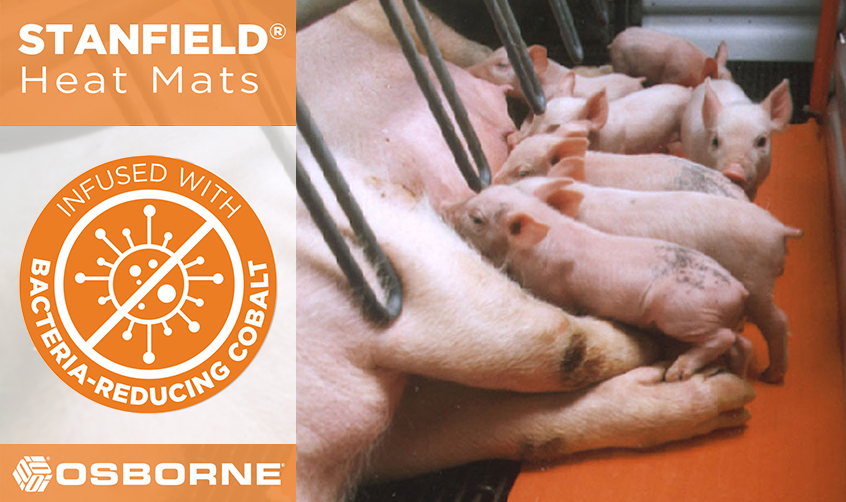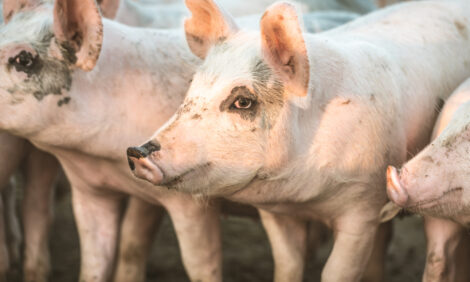



Foot and Mouth Disease in More Than 30 Ugandan Districts
UGANDA - Banned beef and pork are on sale in nearly 30 districts where the government has imposed a quarantine following the outbreak of foot-and-mouth disease.The majority of the affected districts are in eastern and northern regions. Sources in the affected areas say blatant defiance of government directives by locals and weak enforcement of the said directives have been some of the major reasons for the swift spread of the FMD epidemic, reports TheObserver.
Contacted for comment on the issue, the commissioner for livestock health and entomology in the ministry of Agriculture, Animal Industry and Fisheries, Chris Rutebarika, warned authorities and locals, saying “they are committing so many crimes.”
“We are dealing with rogue administrators who are irresponsible. They are prolonging economic losses,” he said, before saying of the locals: “They are hurting themselves because if you are looking at eating meat today but there is no meat tomorrow (because of the continued spread of the foot-and-mouth disease), then that is being myopic.”
The viral disease, which affects cloven-hoofed animals such as cattle, sheep, goats and pigs, was first reported by authorities in Gweri, Soroti district to the agriculture ministry in late June. Soon after, it emerged in Ngora, Kumi, Bukedea and Mbale districts. The ministry imposed a ban on the movement of cloven-hoofed animals or their meat in the affected areas, but the disease had still spread to 25 districts by late July.
Now, an investigation by The Observer shows that more than a month since the quarantine was imposed; some defiant locals are supplying meat to willing consumers while others bribe officials to allow them transport animals from the affected areas to other parts of the country and beyond.
Sources said the lax situation has resulted in the spread of the disease to more districts; 27 according to the ministry but 34 according to knowledgeable sources who declined to be named because they are not authorised to speak to the media on behalf of the ministry.
Although FMD does not usually kill mature animals, it greatly affects their productivity. The disease affects the mouth of the animal, thereby making feeding difficult, leading to retarded growth and low milk production.
Passwords for Meat
Since the ban on the sale of meat, butchers have gone underground and now sell their products under the cover of darkness. In Teso sub-region, for instance, the butchers and their clients use “passwords” such as Supermatch (banned cigarettes from Kenya) or isumalin (nails) to conduct business under the nose of watchful authorities.
The butchers keep their meat at secret locations but hover around their now closed butcheries all day. When a client comes asking for either Supermatch or isumalin, they spring into action and ask for money. A few minutes later, the client receives the supplies. In other parts of the sub-region under quarantine, such as Kumi and Bukedea districts, the meat is sold in the open.
For instance, on 4 September, this reporter saw beef and pork hanging out of two butcheries beside the Kumi-Ngora road in Nyero sub-county. Several locals could be seen buying the meat and walking away with it in polythene bags. In another incident seen on Saturday, 6 September, during a market day at Odello market on the outskirts of Kumi town, locals set up four stalls for selling pork and another two for selling beef.
Sources said local butchers in such areas act with impunity because of collusion with district authorities, who solicit bribes in return for letting the sale of meat continue despite the quarantine. In one incident, according to the source, traders from South Sudan were able to buy 80 cows from an area under quarantine and transport them to South Sudan after paying bribes in millions of shillings.
Mr Rutebarika said the duty of enforcing the quarantine in each affected district is supposed to be shared by the district police commander, chief administrative officer, LC V chairperson and the secretary for production. Any individual found guilty of transporting quarantined animals or selling their meat is supposed to be liable to three months’ imprisonment or a fine of Shs 2 million.
Insufficient Vaccines
Some locals say the central government is not doing enough to combat the spread of the animal disease. Valentine Okalebo, a cattle farmer in Ongiino sub-county, Kumi district, said the foot-and-mouth disease vaccines sent from the ministry to the districts were not sufficient.
“If they had managed the programme at once, it would actually have saved a number of cows. But now what is happening is that people are treating cows as individuals. Whenever a cow gets affected, people pay a lot of money to treat these animals,” he said.
Mr Rutebarika conceded that the vaccines had so far not been sufficient to cover all affected areas, but blamed the inadequacy on limited funding rather than administrative shortcomings within the ministry.
“We are receiving more vaccines this week,” he said, before adding, “We will never have enough vaccines because you know our government... Have you seen a ministry with enough money?”
Authorities in some of the districts, who declined to be named, also said their efforts to enforce the quarantine are frustrated by the lack of coordination. They said the ministry had not established a task force to monitor the implementation of the quarantine. However, Mr Rutebarika said there was no need to set up a task force.
“Enforcement of quarantine is a district matter. It is not an inter-district issue. There is no need for coordination between districts,” he said. “The law says nobody should move animals through your district; so, those who say there is no coordination are being escapist.”
Past Cases
A single FMD vaccine costs between Shs 250,000 and Shs 300,000, which is often out of reach of the usually cash-strapped local governments. In previous cases, the central government has provided emergency funding to combat the disease, such as in 2006 when President Museveni instructed the finance ministry to provide money to buy vaccines when FMD had attacked Ntungamo, Mbarara, Isingiro, Rakai and Sembabule.
Earlier, Mr Rutebarika had said the current cases in the east and north were hastened by a restocking programme under the Office of the Prime Minister.
“Animals that were not initially vaccinated were distributed to different farms. These passed on the infection to the healthy ones, making FMD a widespread infection,” he said.
As the central government grapples with its response to the disease, Mr Rutebarika says the district authorities must ensure that they are an effective first line of defence.
“If they did everything right, we count three to four months after the last clinical case and then lift the quarantine,” he said. “If they are doing everything to fail the quarantine, it can last forever.”









